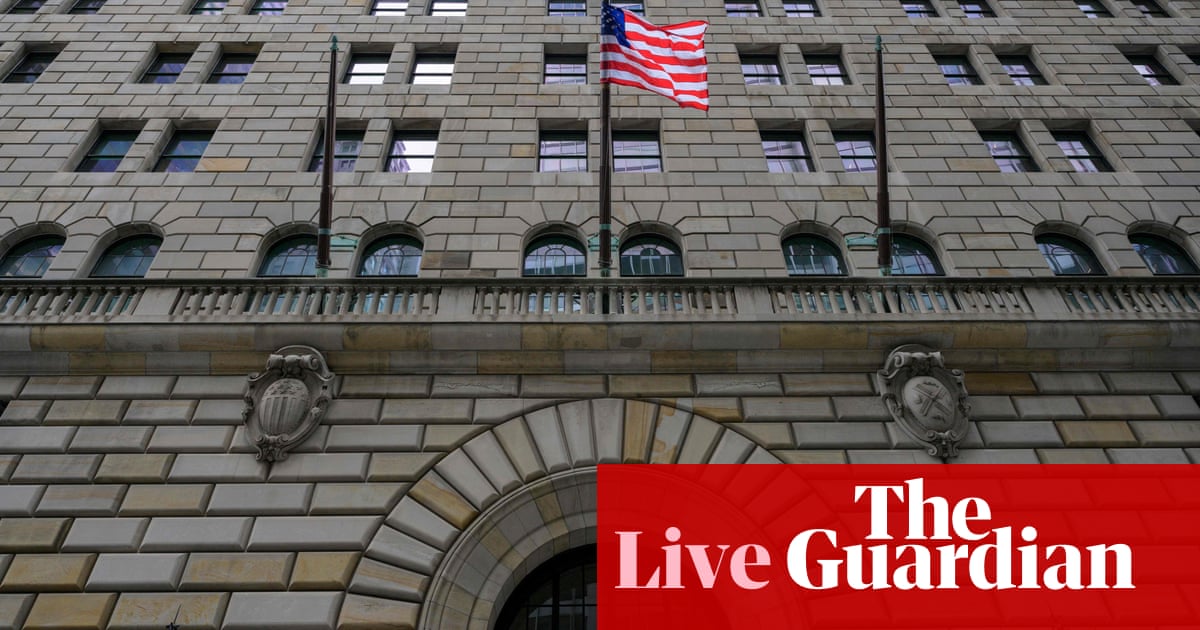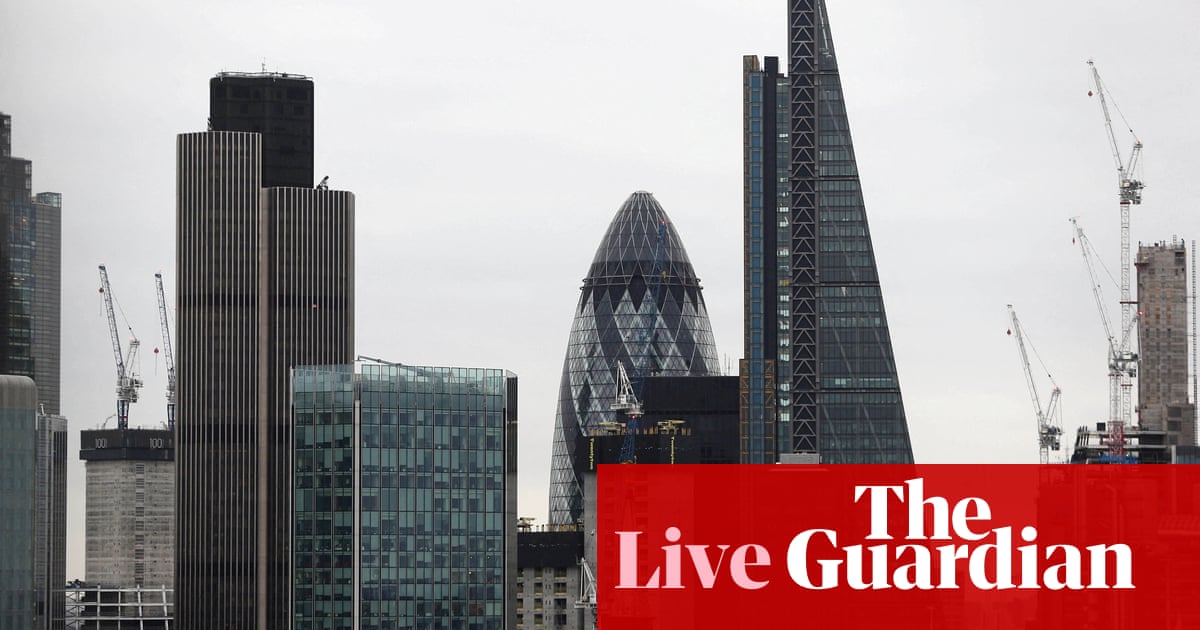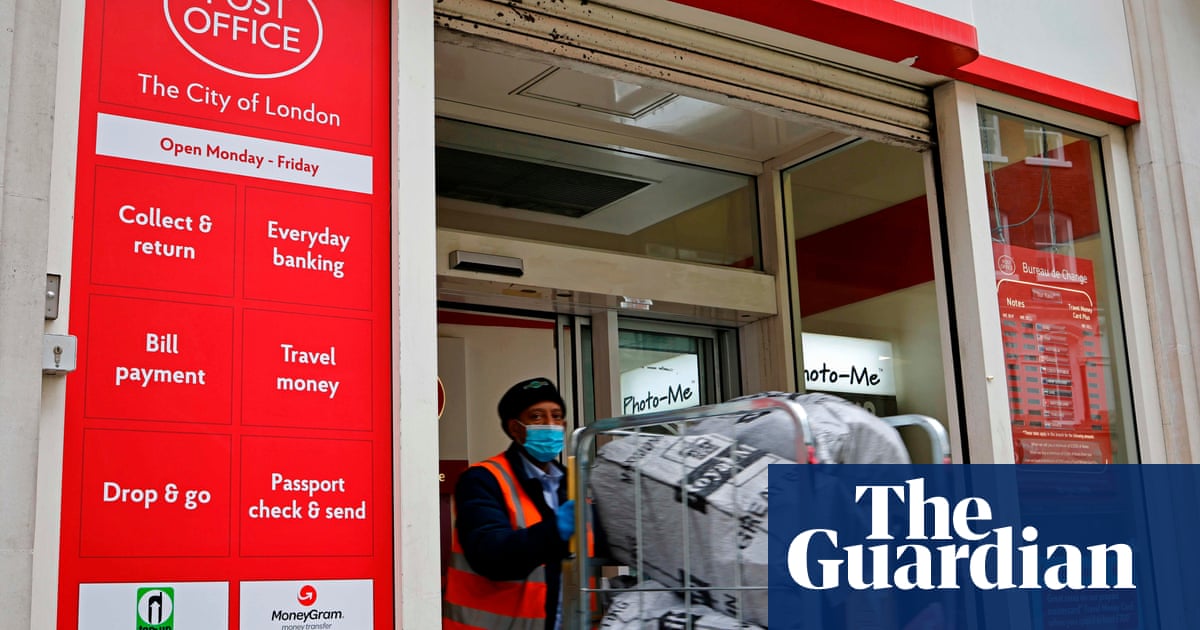
Before I go, another quick comment on the US GDP numbers.
James Knightley, chief international economist at ING, notes that GDP growth outperformed thanks to inventory building and falling imports. He explains:
Both the fourth quarter US GDP report and the December durable goods numbers are strong at the headline level, but look a little closer and evidence of a deteriorating growth story is plain to see
Looking to first quarter GDP data, the momentum in the numbers isn’t looking great. We’ve had six consecutive MoM falls in residential construction, three consecutive drops in industrial production, the big falls in retail sales in November and December already mentioned and now we find both the manufacturing and non-manufacturing ISM indices are in contraction territory.
We need to see a turn quickly in something to prevent first quarter GDP turning negative. But the Conference Board’s measure of CEO confidence is now at the lowest level since the Global Financial Crisis, which suggests that the risk is corporate America will turn increasingly defensive, implying a greater focus on costs rather than motivation to expand businesses.
Closing summary
The former chief economist of the Bank of England has warned there is “more pain to come” for households and the wider economy as mortgage rate increases hit people’s bank accounts and weigh on spending.
Andy Haldane, who is now chief executive of the Royal Society of Arts, said it was painful to see the effects of rising interest rates since he left the Bank of England and its rate-setting monetary policy committee in June 2021.
The UK’s political instability – a “ministerial merry-go-round” in Haldane’s terms – has meant that government policy has not been followed through, and there is still a lack of a “medium-term plan for growth in this country”, he added.
More than 300 jobs at Asda are at risk and 4,300 staff will receive a pay cut after the supermarket announced a swathe of changes to night shifts, Post Office outlets and pharmacies to cut costs.
The supermarket chain said 211 night shift manager roles were going and a further 4,137 staff would lose out on premiums of at least £2.52 an hour for working nights as it switched the restocking of packaged groceries and frozen food to daytimes and evenings.
In addition, Asda planned to close seven of its 254 in-store pharmacies, putting 62 jobs at risk, including 14 pharmacists.
The US economy grew faster than expected at the end of last year, suggesting a soft landing despite the interest rate hikes, according to some economists – although others say the underlying growth is weaker and still forecast a “mild recession” in the first half of this year. GDP rose at an annualised rate of 2.9% between October and December, faster than the 2.6% forecast by economists, a slight slowdown from 3.2% growth in the third quarter.
European stock markets are pushing higher as upbeat quarterly results from TSB owner Sabadell, STMicroelectronics and Nokia helped ease recession worries. Wall Street is also up after the GDP data, with weekly jobless claims and durable goods orders for December also better than expected.
Morrisons sales and profits fall
Morrisons has revealed its sales and profits fell last year as shoppers became “increasingly pessimistic” amid the rising cost of living and political uncertainty.
The retailer, which lost its spot at the UK’s fourth largest supermarket to Aldi last year, said underlying profits fell 15% to £828m in the year to 30 October as sales at established stores slid 4.2%.
After one-off costs and interest payments the company made a £33m loss, narrowing from a £121m in the previous 39 weeks, the only figure available.
David Potts, the chief executive of Morrisons, said the amount of goods sold by the supermarket had slid back as prices had risen and “across the UK consumers were becoming increasingly pessimistic as they battled with things through the covid pandemic, political uncertainty, cost of living price rises and interest rates.”
“It has clearly been a tough time when consumers have been making hard choices,” he said.
While Morrisons’ sales figures are disappointing in comparison to its bigger rivals Tesco, Sainsbury’s and Aldi, Potts said that a £7bn debt-fuelled takeover by US private equity firm Clayton Dubilier & Rice in 2021 had not hindered the retailer.
He said last year was “one of transition” but added “We are combining well with CD&R to be more effective.”
HMRC boss tells MPs ‘innocent errors’ are not penalised amid Zahawi tax row
Interesting comments from the head of HMRC re tax affairs (NB the deadline for self assessment tax returns is next Tuesday).
The head of HM Revenue and Customs has told MPs there are “no penalties for innocent errors” in relation to tax affairs, raising further questions about the circumstances that led to the Conservative party chair, Nadhim Zahawi, being fined by the tax office.
HMRC’s chief executive, Jim Harra, said his department did not penalise taxpayers who were deemed to have taken “reasonable care”.
“There are no penalties for innocent errors in your tax affairs,” he told the public accounts committee on Thursday. “If you take reasonable care, but nevertheless make a mistake, whilst you will be liable for the tax, and for interest … you would not be liable for a penalty.
“But if your error was as a result of carelessness, then legislation says that a penalty could apply in those circumstances.”
Hunter then turns to durable goods orders:
Elsewhere, the bigger-than-expected 5.6% [month-on-month] jump in durable goods orders in December was almost entirely due to a bumper month for bookings at Boeing, with notoriously volatile non-defence aircraft orders up 115.5% m/m. Excluding transport, orders fell by 0.1% month on month (m/m).
Worse, non-defence capital goods orders (ex. aircraft) fell by 0.2% m/m last month, while shipments in the same category declined by 0.4% m/m. Alongside the already-reported falls in production of business equipment, that’s another signal that higher interest rates are increasingly weighing on business investment.
The advance economic indicators showed that the good trade deficit widened to $90.3bn in December, from $82.9bn. Exports fell by 1.6% m/m, with imports rebounding by 1.9% m/m. After adjusting for price changes, real good exports appear to have increased by 1.0%, with real imports up 1.4%. Nevertheless, this adds to the evidence that, despite the resilience of GDP growth in the fourth quarter, the economy was losing considerable momentum going into the first quarter of this year.
Andrew Hunter, senior US economist at Capital Economics, says the underlying pace of growth was much weaker:
The 2.9% annualised rise in fourth-quarter GDP was a little stronger than we had expected, but the mix of growth was discouraging, and the monthly data suggest the economy lost momentum as the fourth quarter went on. We still expect the lagged impact of the surge in interest rates to push the economy into a mild recession in the first half of this year.
Headline growth beat our 1.9% estimate mainly thanks to another positive contribution from net trade – with the surge in exports in the third quarter being only partly reversed with a 1.3% fall in the fourth, despite drags from softer global demand and the stronger dollar. The 1.5%pt boost to growth from inventory building was also stronger than we had anticipated.
But the rest of the report was a disappointment, with final sales to private domestic purchasers edging up by only 0.2% annualised, after a muted 1.1% rise in the third quarter. Consumption growth slowed slightly to 2.1%, from 2.3%. Moreover, that growth reflects strong gains at the start of the quarter, with the retail sales data suggesting that real consumption fell slightly over the final two months of last year. That suggests higher rates were starting to take a bigger toll, and sets the stage for weaker growth in the first quarter of this year.
The 6.7% slump in fixed investment was also worse than we had anticipated, with residential investment plunging at a 26.7% annualised pace, and business investment rising by a muted 0.7%. Despite the drop back in mortgage rates, further weakness in residential investment lies in store, and we also think the 3.7% fall in business equipment investment has further to run.
Richard Flynn, managing director at Charles Schwab UK, says the GDP figures suggest that the Federal Reserve has succeeded in engineering a soft landing for the economy, despite interest rate hikes needed to bring inflation down.
Today’s figures exceed expectations for growth in the fourth quarter. For almost a year, the Federal Reserve has been trying to achieve a soft landing by raising short-term interest rates just-enough to bring down inflation without causing a recession. It’s clear the economy remains relatively strong in the face of the Fed’s efforts, suggesting they’re succeeding.
However, investors may fear that today’s figures are somewhat deceiving as other recent data has pointed towards a recession. Whilst Fed officials have signalled they plan to “hike and hold” rates at high levels to ensure inflation recedes, the market seems doubtful. In fact, investors are already pricing in cuts to the federal funds rate target in the second half of 2023. This mismatch in expectations may drive volatility in the months ahead.
US economy grows 2.9%, faster than expected
The US economy grew at an annualised rate of 2.9% between October and December, faster than the 2.6% forecast by economists. This comes after 3.2% growth in the third quarter.
Other data was also better than expected. There were 186,000 claims for unemployment benefits last week, the lowest number since April 2022, versus expectations of 205,000.
UK retail sales slump to continue in February – CBI
A slump in retail sales this month is expected to continue in February as shops battle rising costs and squeezed household incomes, according to a leading business survey.
The CBI’s distributive trades survey, which covers retail and wholesale businesses, registered a sharp fall in sales in January and found respondents were concerned about a repeat next month.
The number of shops reporting a rise in sales was outnumbered by those reporting a fal to leave a balance of -23 in January, from +11 in December, the CBI said.
Car sellers hit by a slump in demand for both new and used cars reported an even lower balance of -34.
Samuel Tombs, chief UK economist at Pantheon Macroeconomics, said:
The survey suggests that households have started the year in belt-tightening mode, as worries about job losses, higher mortgage rates and another jump in energy prices in April dominate their spending decisions.
He said the drop in sales was disappointing, “given the potential for a partial recovery in January after a combination of snow and strikes across both the rail and postal sectors weighed temporarily on spending in December”.
He added that a surplus of stock coming out of the Christmas trading period was also troubling the sector and would limit the ability of shops to make up for lost sales with higher prices.
The net balance of retailers reporting that stocks were more than adequate to meet demand increased to +23 in January, from +16 in December, and now exceeds its +18 average in the 2010s.
This suggests that retailers will slow the pace of price rises significantly, not just because producer prices are now barely rising, but also because they want to get rid of excess inventory.
Tombs echoed many retail analysts who believe a squeeze on sales and margins will make 2023 “a tough year for most retailers”.
Martin Sartorius, che CBI’s principal economist, said the downturn in consumer spending was likely to last all year, which meant it was important for the government to address the structural problems holding back retailers.
Reforming business rates and the Apprenticeship Levy would unlock much-needed investment and help the UK avoid getting stuck in a rut on growth.
NatWest to shut 23 branches, adding to bank branch closures
Joe Middleton
NatWest is to shut 23 branches across the country, adding to a raft of closures across the industry so far this month.
The 21 sites in England and two in Wales will close in the first half of this year. The bank said the closures were due to more customers moving to “mobile and online banking”.
It comes a week after Lloyds Banking Group said it would close 40 Halifax and Lloyds sites in England and Wales. Lloyds said the number of customers visiting the branches it plans to close had dropped by 60% on average over the last five years.
The latest announcement from NatWest means 87 branches have been slated for closure by high street banks so far this year.
A NatWest spokesperson said:
As with many industries, most of our customers are shifting to mobile and online banking, because it’s faster and easier for people to manage their financial lives.
We understand and recognise that digital solutions aren’t right for everyone or every situation, and that when we close branches we have to make sure that no one is left behind. We take our responsibility seriously to support the people who face challenges in moving online, so we are investing to provide them with support and alternatives that work for them.
Changing customer habits caused by the rise of online banking has prompted banks to rethink their high street presence, with a slew of closures last year. In November, HSBC announced it would shut 114 branches in the UK, more than a quarter of its network.
Royal Mail restarts some international deliveries following cyber-attack
Royal Mail has resumed some international deliveries following a damaging cyber-attack on its business, and revealed that recent strikes by postal workers cost it £200m and pushed it into a hefty operating loss.
The company said it has restarted overseas tracked and signed-for services to all destinations for customers buying online after the attack by a Russia-linked ransomware gang named Lockbit.
The group’s owner, International Distributions Services, said Royal Mail’s operating losses rose to £295m in the first nine months of its year so far, as the company was hit hard by 18 days of strikes, including walkouts in the run-up to Christmas.
Its outlook for the full year (a loss of £350m to £450m) is based on no further days of strike action in its fourth quarter and on the Communication Workers Union (CWU) accepting its “best and final” pay offer, it said. Royal Mail bosses are back in talks with the union in an attempt to resolve a long and bitter dispute, but the CWU launched its third ballot for industrial action this week.
In its trading update, the group reported further pressures in the embattled Royal Mail business, as revenue fell 16.7% in its third quarter to 31 December, with letters down 7.5% and parcels down 23.6%.
It also said the number of voluntary redundancies needed under plans to axe 10,000 roles by August will be “significantly” lower than the 5,000 o 6,000 it initially expected because of staff turnover and cuts to variable full-time staffing.
Royal Mail contacted the Guardian after publication with the following statement: “Following the recent cyber incident, we have been temporarily unable to despatch export mail parcels to overseas destinations. We have temporarily asked customers not to submit any new export parcels into the Royal Mail network until further notice.
“We have been working on new despatch processes and we have started moving export parcels that are already in the Royal Mail network.
“Our initial focus is on clearing export parcels that have already been processed and are waiting to be despatched. We continue to make good progress. We have recently resumed International Tracked & Signed as well as International Signed services to all destinations for business account customers and customers buying postage online.
“We would like to sincerely apologise to impacted customers for any disruption this incident may be causing. We understand how frustrating this situation is for our customers, and we would like to reassure them that our teams are working around the clock to fully resolve this situation.”












